Hegelian Themes
Interview by Richard Marshall.
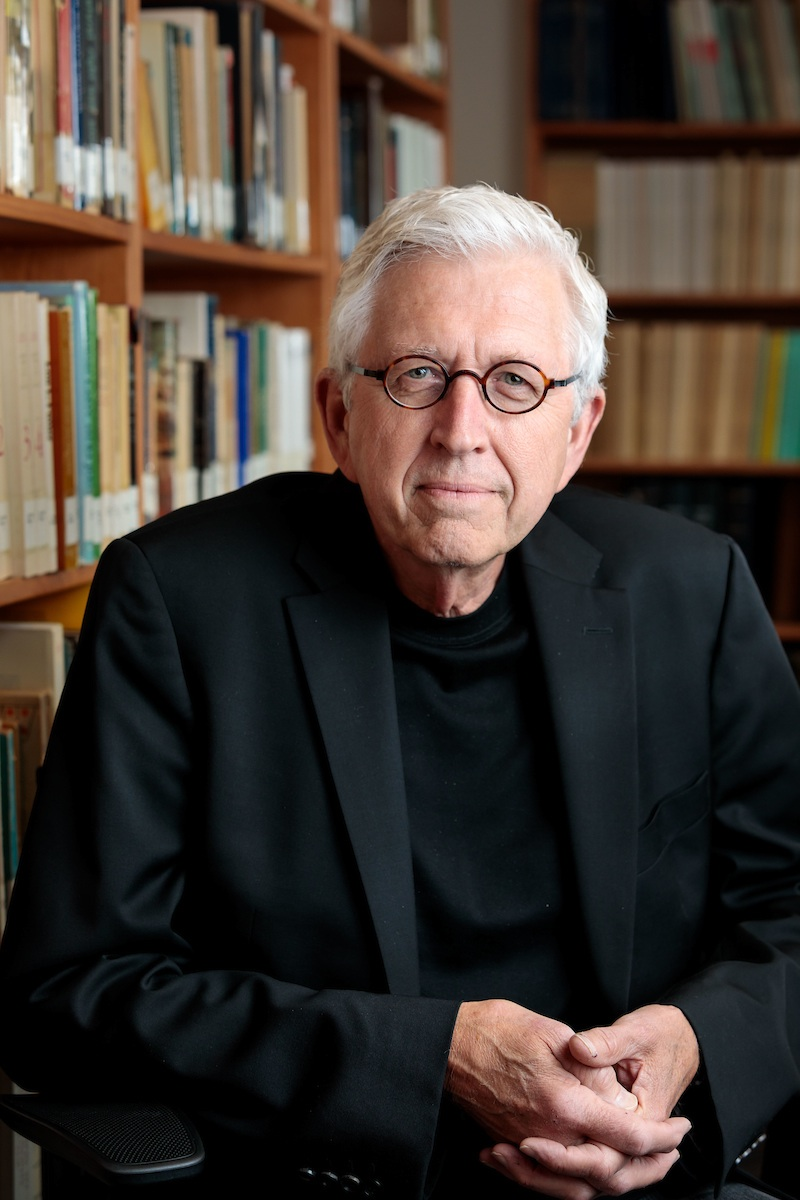
Robert Pippin is an expert on Kant, Hegel, Idealism, Nietzsche, modernism and philosophy of film. Here he discusses Hegel and Kant, links between logic as metaphysics and modern developments in the philosophy of logic, self-consciousness, Hegel's view about the social characteristic of subjectivity and normativity, John McDowell and Robert Brandom, the dynamism of reason in Kant and Hegel, life as a logical category, the unity of the idea of the true and the idea of the good in the ‘Absolute Idea’, Hitchcock's Virtigo and Zizek, aspects of the Dreyfus - McDowell debate, and Nietzsche's idea of philosophy as psychology.
3:AM:What made you become a philosopher?
Robert Pippin:I was a literature major in college and became especially interested in European literature that seemed to me suffused with philosophical ambition; work by Rilke, Beckett, Proust, Musil, Mann, and in philosophers whose work had a literary dimension, like Plato, Hegel, and Nietzsche. .Since that was what interested me, I decided, after having taken as many philosophy as literature courses, and really at the last possible minute, to go to graduate school in philosophy.
3:AM:Hegel makes a claim that something like logic is metaphysics. This is a complicated claim. So firstly, where does Kant figure in Hegel’s thinking this?
RP:The basic problem in modern philosophy is whether “pure thinking,” empirically unaided reflection, pure reason, can issue in any substantive conclusions. In the rationalist tradition, a positive answer meant that pure reason could have a special insight into an ontological realm unavailable in sensible experience, but which constituted the “really real,” the true nature of reality, from Platonic Ideas to Descartes’s thinking thing to Leibniz’s monads. Kant denied this was possible, and argued that pure reason’s proper object was itself, but that nevertheless what Kant called “synthetic a priori” judgments were possible; a priori knowledge about reality, at least the reality of “appearances,” what is available for experience. Hegel agreed with Kant against the tradition of rationalist metaphysics, but argued against the restriction of philosophical knowledge to what was necessary for appearances, that we did not know things in themselves. The project depends on a reinterpretation of the basic principle of all Western philosophy until very recently, that to be is to be intelligible, and so the determination of possible intelligibility is a determination of being.
3:AM:Not only Kan tis important to Hegel, but you say Aristotle’s approach to metaphysics is also important. So how does Aristotelian metaphysics differ from modern rationalist metaphysics?
RP: Kant’s critique of rationalist metaphysics oddly ignored Aristotle, who had argued against Plato’s “separation” of true reality from the available sensible world. Aristotle’s metaphysics concerned the form of ordinary beings, especially artifacts and organic beings, forms uniquely accessible to philosophical reflection. For Aristotle, the chief task of metaphysics was not to say of anything what it is, but to say of anything what must be the case for it to be possible to say what it is. My claim about Hegel is thus that he represents a highly unusual (and obviously quite difficult and often obscure) synthesis of these Kantian and Aristotelian elements.
3:AM:So what are the links between logic as metaphysics and modern developments in the philosophy of logic?
RP:For Frege, to take one example, logic, properly understood, is all the metaphysics we need. But Frege revolutionized our understanding of logic, and from the perspective of the tradition, radically narrowed its scope, even if his innovations vastly increased its power. The basic truth-bearer for Frege was the proposition, treated without reference to a thinker or knower, purely in its truth-functional relations with other propositions. For Kant and Hegel, the truth-bearer was the judgment, a mental claim that such and such is so, and Frege thought this all much too psychologistic. This is an extremely important and rich topic, and a great deal of modern anglophone philosophy came to depend on Frege’s revolution.
3:AM:Self consciousness is seen as important for the philosophy of logic, but before asking about that link can you sketch for us how Hegel understands self-consciousness. Hegel takes Kant’s idea of self-consciousness to be a claim about practical philosophy doesn’t he, and that ‘self-consciousness is desire itself’. Can you say something about this?
RP:There are quite a few issues involved in the subject of Hegel’s “account of self-consciousness.” Some of them are purely logical in his sense – that any judging is also an awareness of judging, just as in any action, I must be aware of what I am doing in order to be actually doing it, even though in both cases this does not mean there is any kind of self-observation going on. Some involve what we would call some sense of our practical identity, what kind of a person we take ourselves to be, whether we are self-deceived about ourselves, whether we really know our own motives, and so forth. Some are ethical issues; whether my own sense of my own worth is in some way “reflected” back to me in the society in which I live. This last can involve a kind of projection of myself, who I take myself to be, into a public sphere where it can be contested or rejected, or ignored, a dimension Hegel is probably most famous for, his “struggle for recognition.” So there is no overall answer, although there are connections among all the issues.
3:AM:So how does this lead to his conclusion that subjectivity and normativity is social?
RP:The answer to that question depends on Hegel’s theory of practical rationality and its social character. That is, it involves those considerations we offer to others to justify ourselves when our actions alter what an other would otherwise be able to do. In Hegel’s understanding, the general form of these considerations change over historical time, and in his most controversial claim, he thinks we are by and large getting better at doing this, better at offering considerations that should be accepted by any like-minded agent able to offer considerations of his or her own.
3:AM:How is this Hegelian approachto self-consciousness the basis of much of the later continental philosophy, Marxism, neo-Marxism and critical-theory traditions. And how does your approach contrast with those of other leading contemporary Hegelians John McDowell and Robert Brandom?
RP:Both facets of this question are much too difficult to answer briefly. Perhaps the simplest thing to say is that with respect to Marxism and critical theory, Hegel’s great innovation was to show that something like philosophy, say, the struggle to appeal to reason, to understand ourselves and whether we are acting as we ought, goes on in all sorts of “mediated” ways in the clashes between social classes, the norms underlying the organization of work, the production of art works, the way a family understands itself. But he did not claim that this should be understood to mean that philosophy should understand some ideal, and then see if the world measures up to it at some time. He wanted a to find of way to understand the “internal” standards of any such practice, and whether it measured up to itself. At the end of the day this meant that philosophy could be about, could help us understand, the actual historical world in which we lived, not an atemporal ideal formulated by pure reason.
Brandom and McDowell both have very different ways of interpreting Hegel and I don’t know of any common way of characterizing both as “Hegelian.” Brandom’s approach is very influenced by American pragmatism, and McDowell’s by Wittgenstein, Aristotle and his own interest in the role of concepts in experience, especially perceptual experience. They both make contact in distinct ways with very deep issues in Hegel, and both try to get elements of Hegel right, to learn from Hegel, but also to make use of him to help think about the issues that have interested them.
3:AM:So, returning to the idea of logic as metaphysics, how is the self-conscious character of thought significant for a philosophical logic?
RP:Any pure thinking is always aware of itself as pure thinking, a dimension Kant called “apperception.” For Hegel this meant that pure thinking’s attempt to determine what pure thinking amounted to, and the implications of any result, were always subject to a self-critical self-assessment, and this ultimately formed the basis of his idea that such thinking could be understood to be self-correcting or as he put it metaphorically, “self-moving.” But this is an inadequate statement of what is really a book length topic.
3:AM:How would you characterize the dynamism of reason in Kant and Hegel?
RP:For both Kant and Hegel, reason is a purpose activity. Its exercise is purposive, has its own end. For Kant, this meant an inevitable demand for what he called “the unconditioned,” the completion of this purposive enterprise. Hegel and many others took to claiming that this end, reason’s absolute self-knowledge, was, unavoidably, “the Absolute”; another book-length topic.
3:AM:What does Hegel mean by seeing life as a logical category?
RP: He means it is not an empirical category. Kant had noticedthat strictly in terms of empirical experience and modern natural science, there is no significant ontological difference between a dead body decomposing and a live body growing, or between a diseased body and a healthy body. They both obey the same laws of nature. Kant thought that there obviously was such a difference but that it, life, could not count as an object of knowledge. It must rather be understood as a kind of reasonable posit made by the subject of knowledge. Hegel agreed with much of what Kant said but it always infuriated him that Kant was so often only willing to insist that we need such a distinction but it has no cognitive authority. We simply need it. Hegel ridiculed Kant’s “reverence” for and “fear of” the object, and argued that we could know that life was an objective if also non-empirically derived category.
3:AM:What do you say Hegel meant by the unity of the idea of the true and the idea of the good in the ‘Absolute Idea’?
RP:This is too much for a short answer, or even a long one. It’s really the whole ballgame in Hegel.
One way of beginning to think about it is Aristotelian. To act well, do the good, we must know something like what it is to be a human being, what the good for human being is. We must know that truth. Hegel thought that good was life in a certain social form of life, ethical life or Sittlichkeit, and he thought he knew the right aspects of such a form.
But we could only know that, again at the end of a very long day, if we knew everything, the difference between human and nonhuman animals, the status of nature, the historicity of human life, and the nature of the thinking by which all this could be claimed. Hence: we had to know The Absolute.
3:AM:You’ve written on Hitchcock’s Vertigoand interestingly agree with Zizek that the film presents an interesting and illuminating picture of Hegelian Idealism. But you disagree with Zizek in what the Hitchcock movie shows and that in turn shows where Zizek gets Hegel wrong. So could you say what you take the film to show and why you disagree with Zizek’s reading? Zizek tries to show Hegel as having relevancy for modernism and its problems. Do you think Hegel and his practical philosophy, which sees rational agency as ethical life, can help us understand problems of neo-liberalism and the modern liberal democratic state? Do you find anything in Zizek helpful in this domain?
RP:I have tried to state my differences with Zizek in a review of his big Hegel book, Less than Nothing, which readers can find on my website, and in a review of an ally of his, Adrian Johnston, recently published in the Notre Dame Philosophical Review. Basically both think that Hegel is at heart a dialectical materialist. I certainly do not, but there is no easy way to summarize the issues.
Vertigodoes raise an issue that is a problem for Hegel. Said very crudely, Hegel thinks that, like everything else, the human practical world is in principle fully intelligible. We can in principle make some sense of the way we live. Even if there are all sorts of apparent irrationalities in such a life, they are ultimately only apparent. Films like Vertigoas well as the great Greek and Shakespearian and French classical tragedies in our tradition are a very deep challenge to this assumption, and I am not sure Hegel as a satisfactory response to the implicit challenge they raise.
3:AM:A key debate for modern Idealismis framed by Sellars and his ‘myth of the given’ and what role there is for conceptual activity. The Dreyfus - McDowell debate dramatized this: where do you stand in all this and how would you characterize modern Absolute Idealism?
RP:Let me try to answer, again crudely, only the last part. I don’t know how to formulate an answer that would take in Sellars, the Myth of the Given, and the Dreyfus-McDowell debate. But as for Absolute Idealism, I think of it this way.
As I noted in an earlier answer, idealism in Kant, Fichteand Hegel is a claim about the capacity of pure (empirically unaided) reason to determine of all that is knowable that it is knowable, and how it is knowable. Human reason can thus be understood to be self-authorizing, a tribunal unto itself. In the Hegelian version, this determination of the knowable is a determination of allthat there is in its knowability and so is a metaphysics. The determination of the knowable is not for Hegel the determination of a limitation, as if a limitation just to the knowable. Or, in Hegel’s famous and controversial phrase this determination is “absolute.” In other words, idealism in this sense invokes that deepest principle of Western rationalism mentioned earier, “to be is to be intelligible”; there can be nothing alogos, or unintelligible. Obviously this all rests everything of significance on the determination of the necessary requirements of intelligibility, what Hegel called a logic, and why we should think that such a determination sets out what Kant in another context called the “really” not merely logically possible. (The position obviously does not hold that there is nothing unknown; but that there is nothing in principle unknowable, and that the logic of the knowable can be determined.)
3:AM:What makes you say Nietzsche is really doing psychology? Does his approach suggest that much philosophy is a kind of pathology?
RP: In Paragraph §23 in Beyond Good and Evil, when h is trying to explain the subtitle of the book (“Prelude to a Philosophy of the Future”) he says the following:
Never before have intrepid voyagers and adventurers opened up a more profound world of insight: and the psychologist who “makes sacrifices” (they are not the sacrifizio dell’intelletto– to the contrary!) can at least demand in return that psychology again be recognized as queen of the sciences, and that the rest of the sciences exist to serve and prepare for it. Because, from now on, psychology is again the path to the fundamental problems.
He clearly does not mean an empirical or experimental psychology, and I simply take him at his word and try to show his connection with the great French tradition of moral psychology in Montaigne and others.
And yes, he does want to show that traditional philosophy, or at least that aspect of it he calls “dogmatism,” is pathological.
3:AM:And for the readers here at 3:AM, are there five books you can recommend other than your own that will take us further into your philosophical world?
RP:I assume you do not mean the obvious books by Plato, Aristotle, Kant, Hegel, Nietzsche, Heidegger, etc. but relatively recent authors. I would suggest, in no particular order:
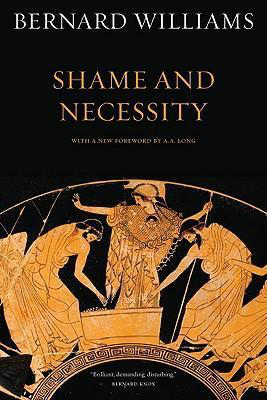
Bernard Williams, Shame and Necessity
Alasdair MacIntyre, After Virtue
John McDowell, Mind and World
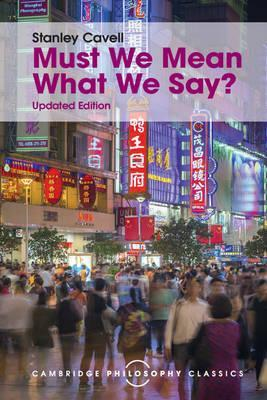
Stanley Cavell, Must We Mean What We Say?
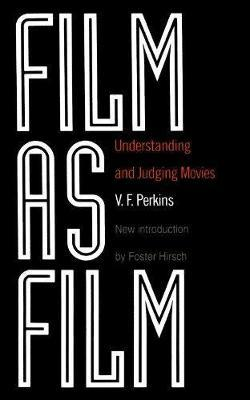
Victor Perkins, Film as Film
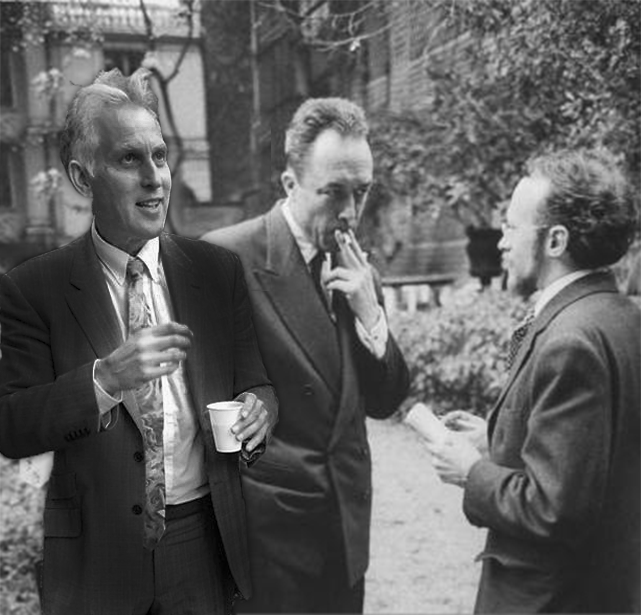
ABOUT THE INTERVIEWER
Richard Marshall is still biding his time.
Buy his new book here or his first book here to keep him biding!
End TimesSeries: the first 302